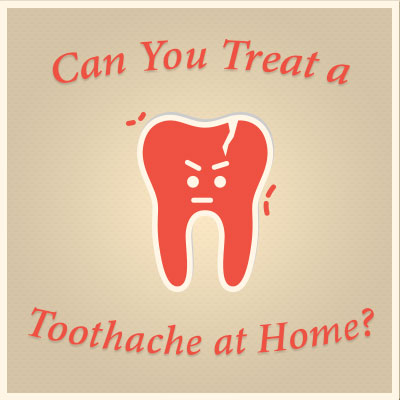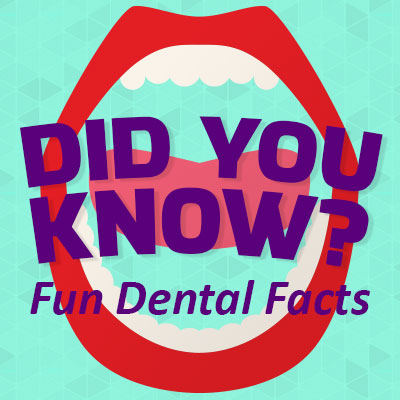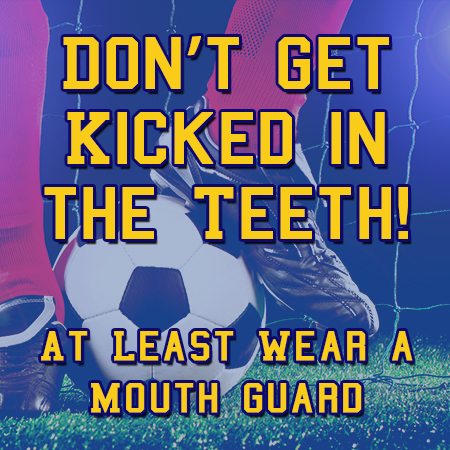Can You Treat a Toothache at Home?
 When you’re suddenly struck with a toothache, floating ideas of home remedies may quickly come to mind. Whether you heard it from your great-aunt or saw it on Pinterest, at-home treatments are everywhere. Portland dentist Dr. David Case can explain more about how to care for a toothache and when to come in for a visit.
When you’re suddenly struck with a toothache, floating ideas of home remedies may quickly come to mind. Whether you heard it from your great-aunt or saw it on Pinterest, at-home treatments are everywhere. Portland dentist Dr. David Case can explain more about how to care for a toothache and when to come in for a visit.
Common causes of toothaches are infections, cavities, damaged enamel, a cracked tooth or an exposed root – all good reasons to get yourself to the dentist! Home remedies for a toothache may work for immediate relief, but they’re not likely to last long, and they may not be completely safe.
If you like using household ingredients for personal care, you may look into your own pantry for something to relieve the pain, but do your research prior to use–and before things get too out of hand, call your dentist to prevent worse pain or problems.

 As a parent, you will have numerous opportunities to teach your children valuable skills and each one will yield priceless memories. Your child’s first step, your child’s first word, your child’s first bike ride, your child’s first unassisted brushing and flossing session…well, maybe that last one won’t be as memorable, but
As a parent, you will have numerous opportunities to teach your children valuable skills and each one will yield priceless memories. Your child’s first step, your child’s first word, your child’s first bike ride, your child’s first unassisted brushing and flossing session…well, maybe that last one won’t be as memorable, but  A few things are equally important for your oral health, no matter what your age or stage of life. Good nutrition, brushing and flossing habits, visiting the dentist and a little fluoride are always (always) the essentials – you won’t ever hear us say otherwise. However, your dental hygiene routine requires unique considerations for each new season of growth and maturity. Read below as Portland dentist
A few things are equally important for your oral health, no matter what your age or stage of life. Good nutrition, brushing and flossing habits, visiting the dentist and a little fluoride are always (always) the essentials – you won’t ever hear us say otherwise. However, your dental hygiene routine requires unique considerations for each new season of growth and maturity. Read below as Portland dentist  You did it! You got the consultation, booked the appointment, and you actually showed up on the big day. You saw the dentist and now all that has left you hungry! The question is: what can you eat after having dental work done? You need some soft food recipes!
You did it! You got the consultation, booked the appointment, and you actually showed up on the big day. You saw the dentist and now all that has left you hungry! The question is: what can you eat after having dental work done? You need some soft food recipes! Dentistry is serious medicine, and daily
Dentistry is serious medicine, and daily  According to the
According to the  Your Mouth: A Picture of Health
Your Mouth: A Picture of Health Your smile is more powerful than you may know. Scientists have studied many aspects of smiling, such as how it affects your brain, your health, and your overall experience of life. Even the situation you’re in and the people around you are influenced by your smile. The findings may surprise you. Or, if you’re someone who smiles often, they may just confirm what you already know.
Your smile is more powerful than you may know. Scientists have studied many aspects of smiling, such as how it affects your brain, your health, and your overall experience of life. Even the situation you’re in and the people around you are influenced by your smile. The findings may surprise you. Or, if you’re someone who smiles often, they may just confirm what you already know. Having a great smile is a privilege that everyone in Portland should enjoy. The confidence that comes from having genuine pride in your pearly whites is irreplaceable. However, many of us struggle with imperfections in our teeth. Broken, chipped, cracked, stained, and crooked teeth can really put a damper on your smile. At Family Dental Health, we know how much a healthy, happy smile means to Portland residents, so we’d like to talk about how
Having a great smile is a privilege that everyone in Portland should enjoy. The confidence that comes from having genuine pride in your pearly whites is irreplaceable. However, many of us struggle with imperfections in our teeth. Broken, chipped, cracked, stained, and crooked teeth can really put a damper on your smile. At Family Dental Health, we know how much a healthy, happy smile means to Portland residents, so we’d like to talk about how  Do you have a spouse or loved one that complains about your snoring? Do you wake up in the middle of the night gasping for air? Do you find that you are always exhausted during the day and just can’t seem to ever catch up on sleep? If these symptoms sound familiar, you may be suffering from
Do you have a spouse or loved one that complains about your snoring? Do you wake up in the middle of the night gasping for air? Do you find that you are always exhausted during the day and just can’t seem to ever catch up on sleep? If these symptoms sound familiar, you may be suffering from